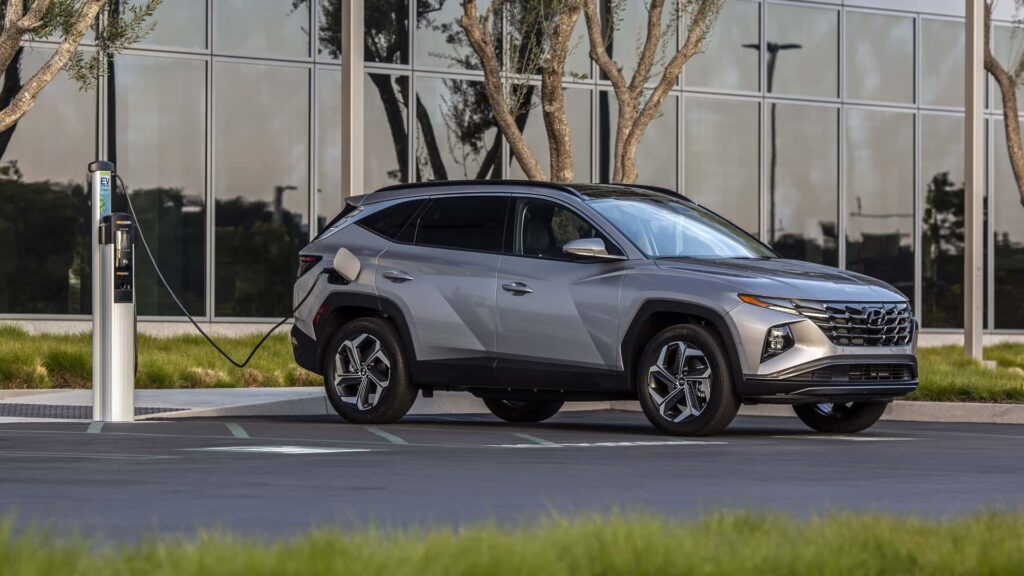Hyundai and Kia released their second-quarter sales figures on Tuesday, showcasing their best-ever first-half sales results in the U.S. Both automakers combined to sell nearly half a million vehicles in the first six months of the year, with a notable increase in hybrid sales even as electric vehicle (EV) sales saw a slight decline due to model year changeovers.
The standout performers for Hyundai were the Tucson and Elantra, which contributed to a total of 439,280 units sold in the first half of the year, marking a 10% year-over-year increase. On the other hand, Kia’s Telluride and K4 helped the brand achieve 416,511 sales in the same period, representing an 8% growth compared to last year.
Hyundai’s hybrid models played a significant role in boosting overall sales, with the Tucson hybrid, plug-in hybrid, and Santa Fe hybrid all setting new sales records in the first half of the year. Total electrified sales, including hybrids, plug-in hybrids, and fully electric models, were up by 20% during this period.
Specifically, the second-quarter sales numbers for Hyundai’s hybrid models were as follows:
– Tucson HEV: 15,991 units (+19% year-over-year)
– Tucson PHEV: 1,424 units (+24% year-over-year)
– Santa Fe HEV: 13,601 units (+56% year-over-year)
Meanwhile, EV sales saw a minor decline in the first half of the year. The Hyundai Ioniq 5, the brand’s top-selling EV, recorded 19,092 units sold, a 2% decrease from the previous year. The Ioniq 6 experienced a steeper 9% decline, while the Ioniq 9 three-row electric SUV delivered 1,013 units so far in 2025.
On the Kia side, the EV6 and EV9 models also faced a decline in sales, with the EV6 dropping by approximately 46% and the EV9 by about 49%. Kia attributed these decreases to model year changes and the integration of the Tesla-style North American Charging Standard (NACS) plug in their EVs.
The shift towards hybrids over EVs can be attributed to buyers gravitating towards vehicles that offer excellent fuel economy and the ability to drive on electric-only modes in city settings. With EV sales growing at a slower pace than anticipated, hybrids have become a popular choice among consumers.
In conclusion, Hyundai and Kia’s strong performance in the first half of 2025 highlights the growing demand for hybrid vehicles in the U.S. market. As EV sales face challenges, hybrids are emerging as a viable alternative for environmentally-conscious consumers looking for fuel-efficient transportation options.

